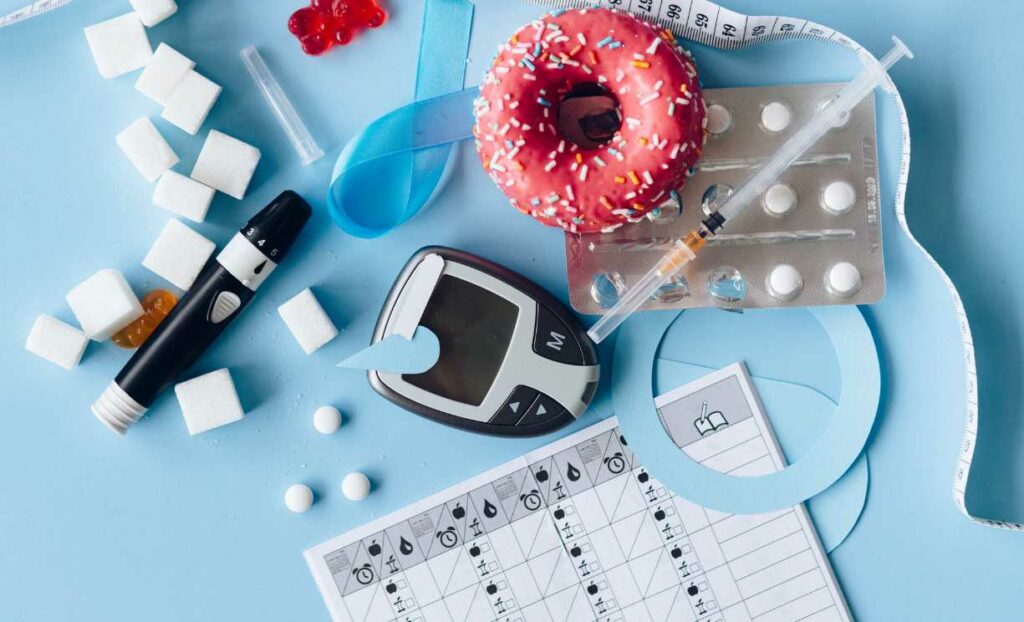Polycystic Ovary Syndrome (PCOS) is a complex hormonal disorder affecting many aspects of a woman’s health, and one key element often associated with PCOS is insulin resistance. Insulin resistance occurs when the body’s cells don’t respond effectively to insulin, leading to elevated insulin levels and potential complications. In this blog, we’ll delve into PCOS insulin resistance medication and how they play a crucial role in improving overall health.
Contents
Common Symptoms Of PCOS
Polycystic Ovary Syndrome (PCOS) is a hormonal disorder that can manifest with a range of symptoms. While the severity and combination of symptoms vary among individuals, here are some common signs of PCOS:
- Irregular Menstrual Cycles: PCOS often causes irregular periods, with cycles that may be longer, shorter, or unpredictable.
- Ovulatory Dysfunction: Many women with PCOS experience difficulties with ovulation, which can contribute to fertility issues.
- Hormonal Imbalances: Elevated levels of androgens, the so-called male hormones, can lead to symptoms such as acne, oily skin, and hirsutism (excessive hair growth).
- Ovarian Cysts: Small fluid-filled sacs (cysts) on the ovaries are a common feature of PCOS, although not all individuals with PCOS develop cysts.
- Weight Changes: PCOS is often associated with weight gain, especially around the abdominal area. Some individuals, however, may experience difficulty gaining weight.
- Insulin Resistance: PCOS is linked to insulin resistance, a condition where the body’s cells do not respond effectively to insulin. This can lead to elevated insulin levels and an increased risk of Type 2 diabetes.
- Skin Issues: Skin problems such as acne, oily skin, and acanthosis nigricans (dark patches of skin) may occur due to hormonal imbalances.
- Hair Thinning or Hair Loss: Some women with PCOS may experience thinning of hair on the scalp, known as alopecia.
- Mood Changes: Hormonal fluctuations in PCOS can contribute to mood swings, anxiety, or depression in some individuals.
- Sleep Disruptions: Sleep apnea and other sleep disturbances are more prevalent in individuals with PCOS, often linked to factors like obesity and hormonal imbalances.
What Is Insulin Resistance?
Insulin resistance is a metabolic condition where the body’s cells become less responsive to the effects of insulin. Insulin plays a crucial role in regulating blood sugar levels. When we eat, our digestive system breaks down carbohydrates into glucose, and insulin helps transport this glucose into our cells, providing them with energy. In insulin resistance, however, the cells don’t respond as effectively to insulin’s signals.
This resistance creates a series of challenges. The body’s ability to efficiently use glucose for energy diminishes, potentially causing feelings of fatigue and a lack of vitality. Moreover, the excess glucose in the bloodstream can contribute to weight-related issues, making weight management more challenging. Over time, persistently high levels of insulin and glucose increase the risk of developing Type 2 diabetes.
Why Does PCOS Cause Insulin Resistance?
Polycystic Ovary Syndrome (PCOS) can cause insulin resistance due to hormonal imbalances in the body. In PCOS, the ovaries produce higher-than-normal levels of androgens, often referred to as male hormones. These elevated androgen levels can lead to disruptions in the normal functioning of insulin. Insulin is a hormone that helps cells absorb and use glucose for energy.
When there’s too much androgen, as seen in PCOS, it can interfere with insulin’s effectiveness. The cells become resistant to insulin’s signals, making it harder for glucose to enter and be used by the cells. This situation results in elevated blood sugar levels and increased insulin production, contributing to insulin resistance.
Common Medications For PCOS-Related Insulin Resistance
Several medications are commonly used to address insulin resistance associated with Polycystic Ovary Syndrome (PCOS). These medications play a crucial role in improving insulin sensitivity and managing the related symptoms. Here are some common medications:






